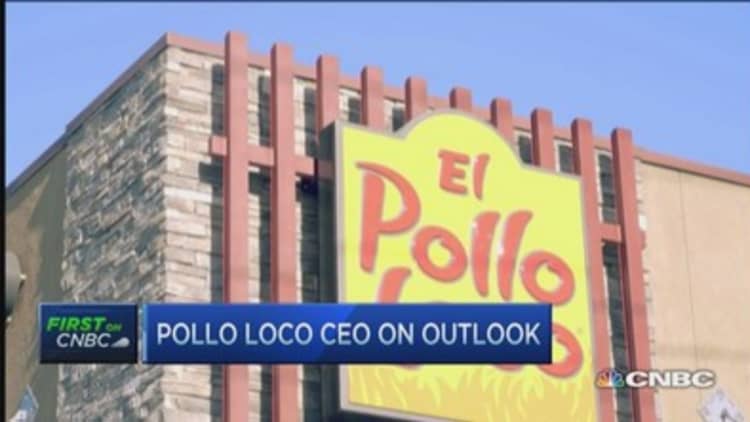Beautiful state, bad for new businesses, says one chief executive about California.
Although more than 85 percent of El Pollo Loco restaurants remain in California, where the chain first began, CEO Steve Sather would not choose to launch the business there if he had the choice.
"I would not start in California. It's too much bureaucracy, too hard to get things done, very heavily taxed, hard to get people to move into California," he said during an interview. "Once you're there, it's beautiful. But bringing a business into California? Very expensive." (Tweet this)
While the Golden State is well known for its pretty beaches and nice weather, it is also known for environmental and permitting regulations that can increase how long it takes for franchises to set up shop. Nearly 60 percent of the limited-service Mexican chain's outposts are operated by franchisees.
California currently has one of the highest minimum wage rates in the nation at $9 an hour, which is set to jump even higher at the beginning of the new year. Real estate prices are also relatively high, and so is sales tax.
"There is a big barrier to entry for new concepts coming into California, hard to get locations, long time permitting …," Sather added.
Read MoreCalifornia drought starts a 'water truck' boom
Even as California readies to hike its minimum wage again, Brook Taylor, spokesman for the California Governor's Office of Business and Economic Development, pointed to robust levels of job creation in the state.

The state has made strides in the past year to create jobs. As of February, its unemployment rate dropped to 6.7 percent from 8 percent in the year-earlier period. Only six states saw a sharper drop in the unemployment rate.
Still, California's jobless rate remains higher than the national average.
To spark more business in the state, California operates a number of programs. Last year, one public agency eliminated a deposit requirement for small businesses that could reach as high as $50,000. A tax credit called California Competes is projected to provide $37.5 million in tax credits to small businesses this fiscal year, Taylor said.
"Small businesses are the engine of California's growth," Taylor said. "It's in our interest to make entrepreneurs have the opportunity to create new businesses and existing ones have the opportunity to expand."
Read More10 of America's fastest growing restaurants
Programs like one operated by the L.A. County Economic Development Corp. aim to cut the red tape out of permitting.
"I think a lot of business might not be aware of the resources available to them," said Lawren Markle, director of public relations at the non-profit. "Trying to go it on your own can sometimes be challenging."
This regulatory landscape contributes to the uncertainty that NFIB/California Executive Director John Kabateck says plagues small business in the state.
"One of the biggest challenges small business faces is a legislature that more often favors feel-good policy and buzz words over understanding the true economic impact of a policy," Kabateck said.
Amid all that discord over policy, El Pollo Loco has branched out. Its remaining restaurants are concentrated in nearby states, including Nevada, Arizona, Texas and Utah. Sather said he finds the Lone Star State to be especially business friendly.
"Why do you think so many brands go to Texas?" Sather said. "It's easy to get business done. They're very pro-business there, and that makes a difference."


